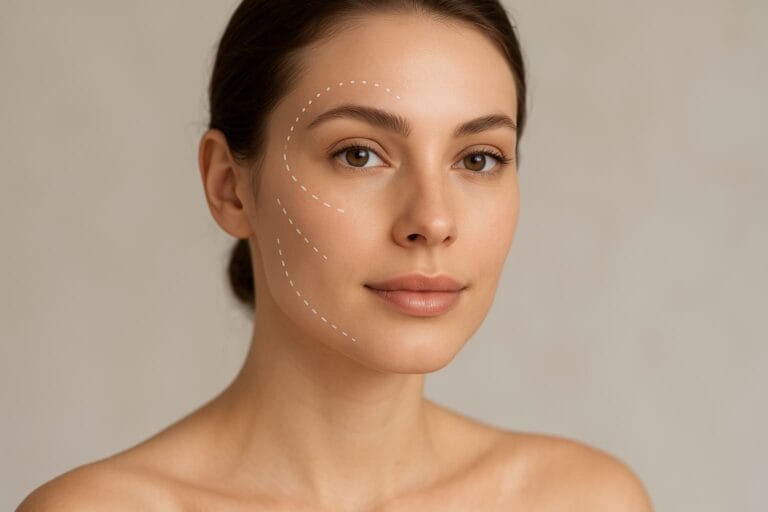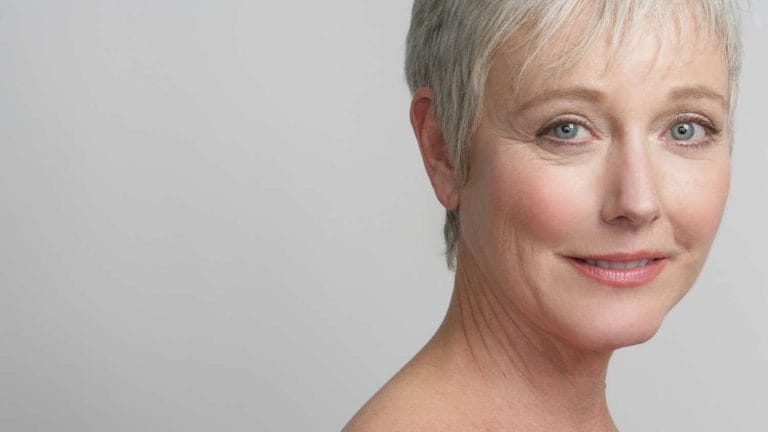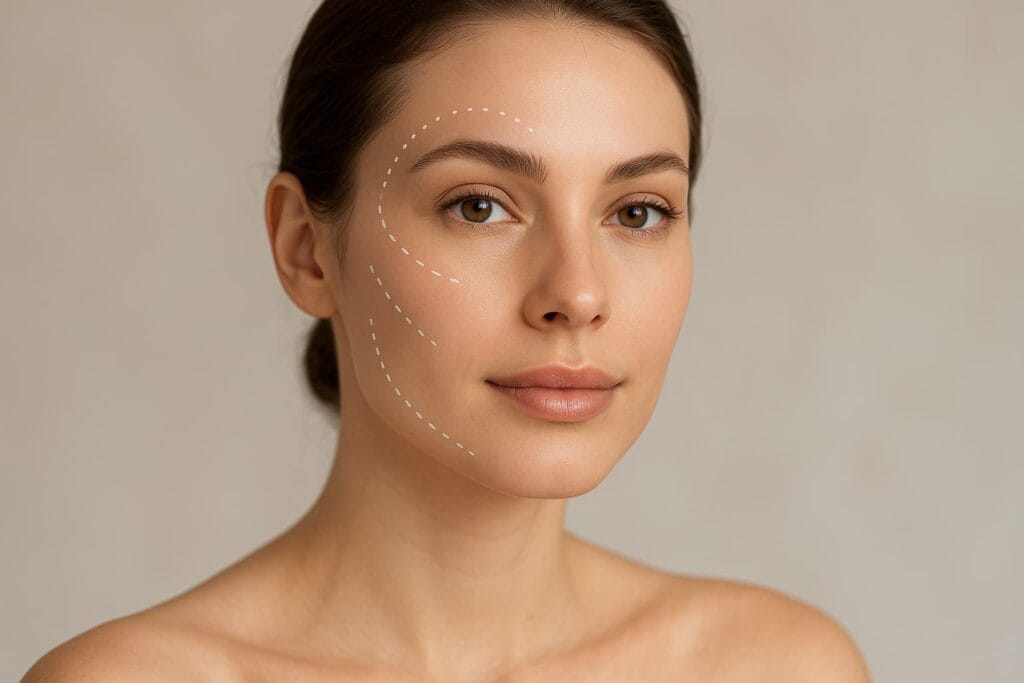
How to Treat Acne Scars: Options for Smoother, Healthier Skin
May 1, 2025
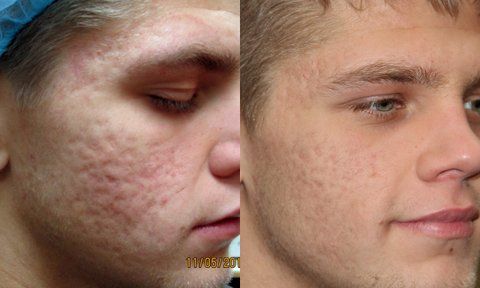
Acne scars can have a lasting impact on skin texture and confidence. While most acne scars cannot be completely removed, they can be visibly improved with the right combination of treatments. At USKIN Clinics, we tailor each plan to suit the individual, as the best approach often depends on the type and severity of scarring.
In this guide, we outline the most effective treatment options for acne scars and how they work.
What Are Acne Scars?
Acne scars develop when inflammation damages the deeper layers of the skin, leading to permanent changes in texture or pigmentation. These scars can appear as:
- Depressions or pitted areas
- Raised or thickened skin
- Red, pink, or brown discolouration
Each type of scar may respond differently to treatment, so a personalised plan is essential.
Skin Needling for Acne Scars
Skin needling, also known as microneedling, uses fine needles to create controlled micro-injuries in the skin. This process triggers the body’s natural healing response, encouraging collagen production and tissue remodelling.
Modern microneedling devices are more precise and less invasive than older roller methods, offering:
- Reduced discomfort
- Minimal downtime
- Permanent improvement in skin texture
This treatment is suitable for various types of acne scarring and is often used in combination with other approaches. Learn more about skin needling at USKIN Clinics.
Dermal Fillers for Depressed Scars
For scars that cause visible indentations, dermal fillers may help restore volume. The process involves:
- Releasing the fibrous tissue that tethers the scar
- Injecting filler beneath the skin to lift the depressed area
While not permanent, results are long-lasting and can be maintained with annual treatments. A thorough consultation is required to determine suitability.
Laser & IPL Treatments for Discolouration
Some acne scars leave behind red or brown pigmentation, even after the inflammation has resolved. These can often be treated with:
- Vascular lasers – Target red or inflamed scar tissue
- IPL (Intense Pulsed Light) – Targets pigmentation and promotes clearer skin tone
Multiple sessions may be needed for optimal results. Learn more about IPL photo rejuvenation at USKIN Clinics.
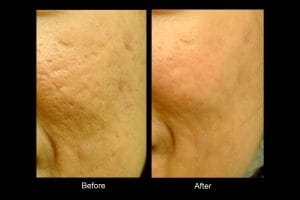
Fractionated Laser Resurfacing
Fractionated lasers create microscopic columns in the skin to stimulate collagen production and replace damaged tissue. Two types commonly used for acne scars include:
- Erbium laser – Medium depth, with moderate downtime
- CO₂ laser – Deeper resurfacing, ideal for severe scarring but with longer recovery
The appropriate laser depends on the depth and extent of scarring. Your practitioner will advise on the most suitable option during your consultation.
Peels & Microdermabrasion
For mild to moderate scarring, superficial peels or microdermabrasion may offer gradual improvement. These treatments help exfoliate the outer skin layers and promote renewal.
- Light treatments may require a series of 8–10 sessions
- Deeper peels or dermabrasion (requiring sedation) may be used for more severe scarring and involve greater downtime
Learn more about our peels and microdermabrasion treatments.
Topical Support: Vitamin A & Vitamin C
Vitamin A (retinol) and vitamin C serums can aid in skin healing and collagen production. While effective for mild scars, they are most beneficial when used in conjunction with professional treatments like skin needling or laser therapy.
We offer a range of medical-grade skincare products tailored to your skin concerns.
Can Acne Scars Be Prevented?
The best way to treat acne scars is to prevent them from forming. Early intervention with appropriate skincare or medical treatment can reduce the risk of permanent scarring.
If you’re experiencing persistent breakouts, speak to your GP or dermatologist about treatment options.
Next Steps: Book a Personalised Skin Assessment
At USKIN Clinics, we take a personalised approach to acne scarring. Our experienced practitioners will assess your skin and recommend the most effective treatment strategy for your needs.
Visit one of our clinic locations to book a consultation and take the first step toward smoother, healthier-looking skin.
Book a consultation to find out more.
Disclaimer: All cosmetic procedures carry risks. Individual results vary. A consultation with a qualified practitioner is required to determine the most appropriate treatment plan.
Similar Posts
How Collagen Loss Changes in Your 20s, 30s, and 40s

Collagen loss does not happen overnight. It’s a gradual process that starts earlier than most…
When Should You Start Collagen Banking?

If you’re thinking about collagen banking in Melbourne, the real question usually isn’t your age.…
Peptides vs Retinoids: Which Is Best for Anti-Ageing?
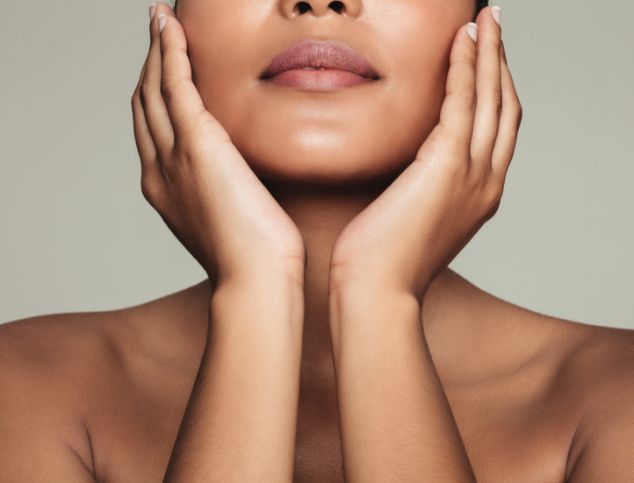
Peptides and retinoids are two of the most talked-about ingredients in anti-ageing skincare, but they…
